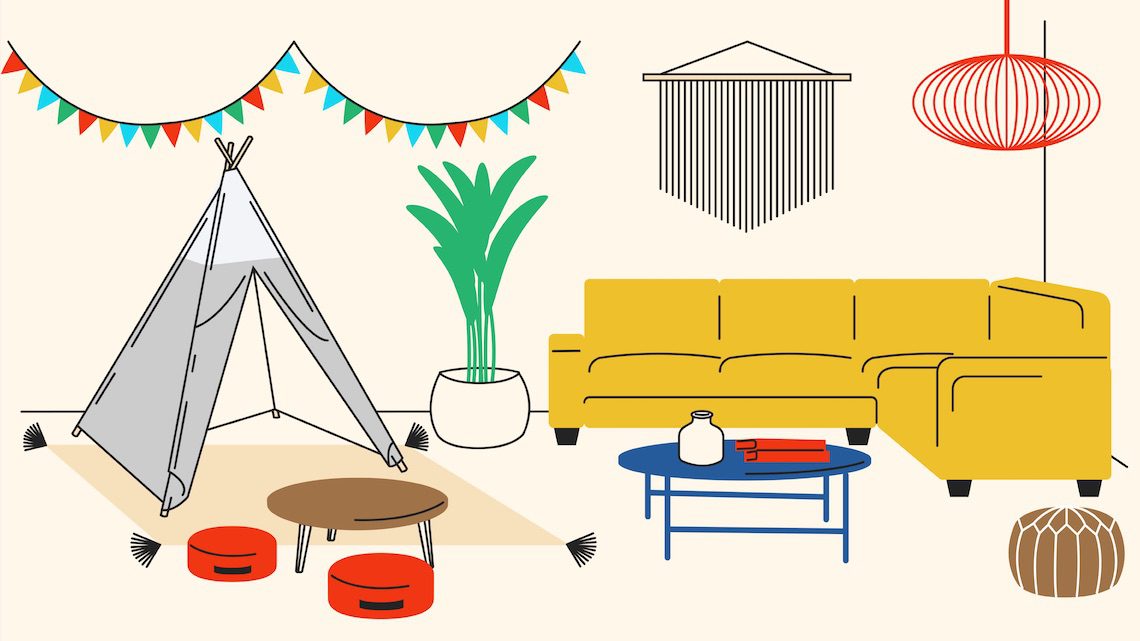
How does Airbnb work for owners: Q&A’s
As an Airbnb management company, we are often contacted by holiday homeowners who are confused about how the platform works and how they can gain the most benefits from being listed.
“How does the weekly discount work?”
“What percentage does Airbnb take?”
“How do I get paid as an Airbnb host?”
“Why should I list my property on Airbnb”
And overall, “How does Airbnb work for owners?”
These are just some of the questions we are asked daily which is why we have put together a blog to give you an overview of the most important elements of this highly successful vacation rental platform. If you’ve got any doubts about whether Airbnb is right for you, then we hope to provide you with some clarity to help you make the right decision.
Estimate your property’s potential
Are you curious about how much your property could earn on Airbnb? Use our estimate tool to quickly assess your property’s earning potential. Enter your property details and get an instant estimate to help you make informed decisions to optimise your listing.
What is Airbnb?
Airbnb is a global online platform that allows individuals to rent out their properties to travellers seeking accommodation. Founded in 2008, Airbnb has transformed the traditional hospitality industry by providing a marketplace where homeowners, known as “hosts,” can offer their spaces—ranging from entire homes to single rooms, or even unique stays like treehouses and boats—as short-term rentals.
Airbnb operates on a sharing economy model, where hosts can monetise their property by listing it on the platform. The platform is accessible via the Airbnb website or mobile app, enabling both hosts and guests to manage bookings, communicate, and leave reviews.
Key Features of Airbnb:
- Listing Creation: Hosts can easily create detailed listings for their properties, including descriptions, photographs, pricing, and availability. They can also highlight amenities and local attractions to appeal to potential guests.
- Search and Booking: Travellers can search for accommodation based on various criteria such as location, price, type of property, and amenities. Once they find a suitable listing, they can book it directly through Airbnb.
- Review System: Trust is central to Airbnb’s model. Both hosts and guests are encouraged to leave reviews after a stay, helping to build a community where experiences are shared, and future bookings are influenced by past reviews.
- Flexibility: Airbnb offers flexibility for both hosts and guests. Hosts have control over their property’s availability and pricing, while guests can choose from a wide range of accommodation types to suit their needs, whether they are looking for a budget-friendly stay or a luxury experience.
Airbnb has opened up new possibilities for travel by offering more personalised and often more affordable alternatives to traditional hotels, fostering cultural exchange, and creating economic opportunities for hosts. Through this platform, guests can experience a deeper connection with local communities worldwide.
1. How does Airbnb work?
Airbnb is a community built on a sharing economy. It is an online platform that allows property owners to list their place as holiday accommodation and allows travellers to find a place to stay while they are away from home.
On the website, homeowners can create a listing for their property and that listing will include a written description, photos and a list of amenities, as well as information about the local area.
Travellers can use filters to search for holiday accommodation that’s right for them – such as the number of bedrooms, location and price.
Airbnb is based on trust. It establishes this trust by asking both guests and hosts to review each other. This creates a rating system for all listings and ensures that, in most cases, everyone has a good experience.

2. What are the benefits of Airbnb?
If you’re considering listing your property on Airbnb, it’s essential to understand the numerous advantages the platform provides. From reaching a global audience to earning additional income and leveraging user-friendly tools, Airbnb offers a compelling opportunity for property owners.
- Free listing – It doesn’t cost anything to list your property on Airbnb
- No price restrictions – You can set the price of your Airbnb to whatever rate you like
- Huge exposure – Travellers all around the world are familiar with the brand and head to the website to search for accommodation
- Other offerings – Your home will not only be listed on a platform that promotes rentals across the globe but Airbnb has also become a ‘go-to’ place for people wanting to book travel experiences which means you have an even wider audience
- Protection – The Airbnb Host Guarantee gives you protection for up to $1,000,000 for damage to your property (eligible countries only)
- Not just homes – Airbnb allows you to list all sorts of accommodation including houseboats, tents, single rooms and treehouses.
Outside of these convincing reasons, there’s the potential to earn yourself a decent passive income by listing on Airbnb. Successful hosts can make a considerable amount of money from their listings. Other benefits of being an Airbnb host include getting to know people from other cultures, being able to share your local knowledge with travellers who will be truly grateful, as well as the personal growth that comes from interacting with folks from all walks of life.
Estimate your property’s potential
Are you curious about how much your property could earn on Airbnb? Use our estimate tool to quickly assess your property’s earning potential. Enter your property details and get an instant estimate to help you make informed decisions to optimise your listing.

3. How do guests get the keys if there’s no reception?
If you’re used to staying in hotels and being greeted by reception staff who hand you the keys and show you to your room, you might find the concept of Airbnb rather unusual. How do guests get into your Airbnb if you don’t have a reception area? The good news is that there are plenty of ways to give guests access to your property and arrange keys for them.
- Meet them at the door or a convenient location – This requires that you are a host who is available at different times of the day. Many hosts will ensure they are available to welcome each new guest – greeting them at the entrance to the property and showing them around before handing the keys over.
- Arrange a neighbour or friend to meet them – If you work full-time and have other commitments you can arrange for a friend or family member to hand the keys to your new guests.
- Use a key safe or lockbox – There is plenty of technology that allows you to store your keys safely so that guests can pick them up when it’s convenient. Lockboxes and key safes work by guests entering a password or code to access the keys. KeyNest offers a very secure key service for Airbnb hosts.
- Hire a professional Airbnb management company – This takes the hassle out of managing all your guest Airbnb check-ins and check-outs. A professional Airbnb management company can do all the guest liaison for you.

4. How does the Airbnb weekly discount work?
Weekly discounts on Airbnb are a powerful tool for increasing booking duration and improving your occupancy rate. These discounts encourage guests to book stays of seven nights or more by offering them a financial incentive, while helping you secure longer, more consistent reservations.
When a weekly discount is applied, it automatically reduces the total booking cost for guests who meet the seven-night minimum, without you needing to manually adjust rates for each inquiry. It’s an especially useful strategy for hosts in urban areas or during off-peak seasons when short stays might dominate.
To set up a weekly discount on your listing:
-
Log into your Airbnb account and go to your hosting dashboard.
-
Navigate to “Listings” and select the property you wish to edit.
-
Click on “Pricing” in the sidebar menu.
-
Scroll down to the “Length-of-Stay Discounts” section.
-
Click “Edit” next to it.
-
Enter the percentage discount you want to offer for weekly stays (e.g., 10%).
-
Click “Save” to apply the changes.
Keep in mind that this discount will apply to any booking of 7 days or more, regardless of whether it spans weekends, weekdays, or a combination of both.
5. How does payment work on Airbnb?
Airbnb handles payments to ensure security for both hosts and guests. When a guest books a stay, Airbnb processes their payment upfront. The host’s payout is then released 24 hours after the guest’s scheduled check-in time, giving Airbnb time to confirm that everything is proceeding as expected.
Airbnb host fees:
For most hosts, Airbnb deducts a 3% service fee from the booking subtotal, which includes the nightly rate and any cleaning fee. If you’re part of the Airbnb Plus program, this fee might be higher due to the additional support and marketing exposure you receive. This service fee is automatically subtracted from your payout, so there’s no need for manual invoicing or deductions.
Payout methods:
Airbnb offers a variety of payout methods depending on your country of residence. You can select your preferred method from your account settings. Most payout options are processed within 1–7 business days, depending on the method and financial institutions involved.
Available payout options include:
-
Direct Deposit (ACH) – Fast and common in the U.S. and some other countries.
-
International Wire Transfer – Useful for hosts in countries with limited banking infrastructure.
-
PayPal – Offers quick, flexible access to funds, ideal for global use.
-
Western Union – Suitable for hosts in remote or underbanked regions.
-
AIS Debit Card (Cuba only) – A localized solution for Cuban hosts.
You can manage your payout preferences by going to:
Account > Payments & Payouts > Payout Methods
Remember to verify your identity and complete any necessary documentation to avoid delays in receiving your payments.
6. How does Airbnb make money?
Airbnb generates revenue primarily through commissions and service fees on bookings made via its platform. Hosts pay a service fee of about 3% of the booking subtotal, while guests pay a service fee ranging from 5% to 15%, depending on various factors such as the reservation subtotal and length of stay.
Additionally, Airbnb offers premium tiers like Airbnb Plus and Airbnb Luxe, which provide high-end accommodations and experiences for discerning travellers. These premium services come with higher commission rates. Furthermore, Airbnb earns from value-added taxes, exchange rates, and various ancillary services such as cleaning fees and extra guest fees, which are set by the hosts and collected by Airbnb.
7. How does the security deposit work?
Certain reservations on Airbnb require security deposits to ensure the property is protected against potential damages. Two days before the guests’ arrival, an authorization hold for the security deposit amount is placed on their payment method. For example, if a guest uses a credit card with a $10,000 limit and the security deposit is $500, their available credit would be reduced to $9,500 until the hold is released.
If an issue arises during the guest’s stay, such as property damage, the host can report the incident and submit a claim within 14 days of the guest’s check-out. This claim can request part or all of the security deposit to cover the damages.
8. Airbnb Superhosts and Airbnb Plus
The above rules mostly apply to all hosts – whether you are an Airbnb Superhost or Airbnb Plus host. If you’re still unsure of where you stand and how this system works, you could contact an Airbnb management company such as GuestReady. We can assist with setting up weekly discounts, making claims for security deposits and helping you welcome new travellers.

